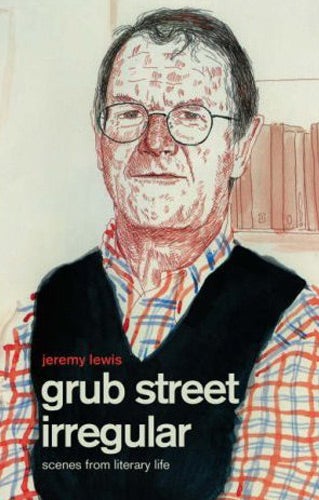Grub Street Irregular, by Jeremy Lewis
An agile memoir enriched by the lives of others

English memoirs often thrive on self-deprecation. Nicely deflationary, slightly subversive, and often very funny, it is a coin of exchange favoured by James Lees Milne, Cyril Connolly and Michael Holroyd. Yet the historian and poet A L Rowse is quoted in this book, warning the author against this "very middle-class" habit.
Jeremy Lewis successfully ignores his advice. "As a child, I excelled at nothing, and little has changed since then," begins his third memoir. Readers of Playing for Time and Kindred Spirits will know that at one time he was "England's most ineffectual literary agent"; and that his skills as a publisher fell short of memos, meetings or engaging with feigned delight or rage about matters he felt were neither here nor there.
Yet his former claim to "unfocused literary ambitions and no very strong sense of purpose and direction" is a thing of the past. He has found a niche in literary magazines, at the same time writing not just memoirs but biography, too. He earned his spurs with a richly entertaining life of Cyril Connolly. Earlier, Lewis had fostered a dislike of biography as "inherently second-rate and second-hand". But a publisher's suggestion, the attraction of Connolly's merciless self-knowledge and romantic yearnings and encouragement from Connolly's widow won Lewis round. He became prouder of a calling that attempts "the resurrection of the dead, and what could be more miraculous than that?"
It also gives him an opportunity to add to the vignettes that enliven his memoirs. In Kindred Spirits he memorialised two powerful women publishers – Norah Smallwood and Carmen Callil. Here it is Barbara Skelton, Connolly's second wife, who delights and appals, flirting with him and blaming him for every disaster.
Some of the characters Lewis revives are half-forgotten literary figures, yet so agile is the writing that the reader's interest is always engaged. The memoir offers a portrait of London literary life over the past 40 years, together with an astute reflection on publishing today. Lewis also takes us inside the office of the Literary Review, revisits the garden shed in which Alan Ross edited the London Magazine and calls on the last member of the Bloomsbury group, Frances Partridge. It is the combination of percipience, self-knowledge and a readiness to admit sadness that gives this book real stature, the self-deprecation not veiling authenticity but forming part of it.
Subscribe to Independent Premium to bookmark this article
Want to bookmark your favourite articles and stories to read or reference later? Start your Independent Premium subscription today.

Join our commenting forum
Join thought-provoking conversations, follow other Independent readers and see their replies